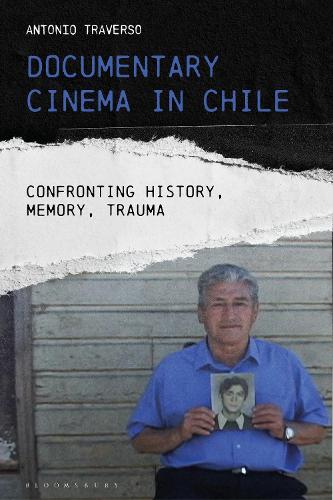
Documentary Cinema in Chile: Confronting History, Memory, Trauma
(Hardback)
Publishing Details
Documentary Cinema in Chile: Confronting History, Memory, Trauma
By (Author) Dr Antonio Traverso
Bloomsbury Publishing PLC
Bloomsbury Academic
19th March 2026
United Kingdom
Classifications
Tertiary Education
Non Fiction
791.436
Physical Properties
Hardback
336
Width 156mm, Height 234mm
Description
Nearly three decades after the end of the dictatorship of General Pinochet, the documentary cinema of Chile has confronted with sophisticated and incisive approaches the memory of this nations historical catastrophe. More than any other medium amidst a diverse and active political memory culture, documentary films have exposed state-sponsored atrocities and their perpetrators, recovered survivors memories of loss, suffering, and resilience, and posed decisive questions that continue to unsettle the collective conscience of Chileans today. Documentary Cinema in Chile contributes an original focus to an established critical literature in English on screen cultures responses to the aftermath of historical disaster, while also engaging with the rapidly expanding Spanish-language critical literature concerned with the legacy of dictatorship in Chile and other South American countries. Through an encompassing discussion of documentaries made during and after the 1973-1990 military regime, this book is an essential source for students, researchers, and general readers interested in the historical legacy of genocidal atrocity in post-conflict societies and the role of cinema, more precisely the documentary film, in processes of working through collective trauma and national reconciliation.
Author Bio
Antonio Traverso studied philosophy in Chile in the 1980s and completed a PhD on the philosophy of vision at Murdoch University, Australia, in 2003. He is Senior Lecturer in Screen Studies at Curtin University, Australia, and his publications include: (as editor) Southern Screens: Cinema, Culture and the Global South (2016) and (as co-editor) El Documental Poltico en Argentina, Chile y Uruguay (2015), Political Documentary Cinema in Latin America (2014), and Interrogating Trauma: Collective Suffering in Global Arts and Media (2011).
